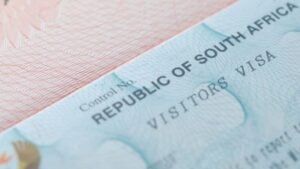Serious implications for anyone trading bitcoin and other crypto assets in South Africa

A recent court ruling declared that South Africa’s exchange control can’t be enforced on cryptocurrencies, because they are not considered “currency” or “capital” in terms of the laws.
Although the ruling has been suspended pending an appeal, it still carries significant implications for crypto asset service providers, crypto exchanges, fintech, and traders in the country.
The ruling came in the case between Standard Bank and the South African Reserve Bank (SARB), after one of Standard Bank’s corporate clients had its funds forfeited to the state due to alleged exchange control contraventions.
The client in question had engaged in a significant number of cryptocurrency transactions prior to its liquidation, acquiring bitcoin on local exchanges and transferring it to foreign exchanges.
This drew the Reserve Bank’s attention, and in 2020, the central bank instructed Standard Bank to place a hold on the company’s accounts due to suspected exchange control contraventions.
Despite representations from Standard Bank—the company’s commercial banker—and the company’s liquidators, the SARB declared the funds forfeited to the state.
Standard Bank sought to set aside the forfeiture, arguing that cryptocurrencies did not fall within the definitions of “currency” or “capital” as contemplated in the country’s exchange control regulations.
Following a deep analysis of South Africa’s exchange control laws and what had transpired with the company in question, the High Court ultimately ruled in favour of Standard Bank.
The specific exchange control regulations that applied in this case are:
- Regulation 3(1)(c), which restricts the export of currency, gold, and securities to, or in favour of, or on behalf of non-South African residents, and
- Regulation 10(1)(c), which restricts the export of capital or any right to capital from South Africa.
Standard Bank argued, and the court ultimately agreed, that cryptocurrencies do not fall within the ambit of “currency” or “capital” as contemplated in regulations.
The court emphasised the need for a restrictive interpretation of legislation that creates criminal or administrative penalties.
It said that cryptocurrency, being neither money nor capital, falls outside the scope of the current Exchange Control Regulations.
The court also noted the practical difficulties in treating cryptocurrency as money, such as the impossibility of attaching crypto wallets under the regulations.
As a result, the court found that the company’s activities involving the acquisition and transfer of cryptocurrency did not contravene the Exchange Control Regulations.
The forfeiture of the funds in the Standard Bank money market account was accordingly set aside.
Big implications for crypto trades in South Africa

According to consultancy PwC, the court ruling means that cryptocurrency service providers and investors have been given some “temporary relief” from exchange control enforcement in the country.
However, it added that the court’s finding that cryptocurrencies are not “currency” or “capital” has significant and far-reaching implications.
Notably, it presents a huge risk for South Africa’s traditional banks, which may need to reconsider their approach to customers involved in cryptocurrency trading.
“The court’s judgment, while it appears to be correct in its application of the law as it stands, exposes a significant regulatory gap,” PwC said.
Cryptocurrencies, by their very nature, can facilitate the rapid and often hidden movement of value across borders, potentially undermining the objectives of a country’s exchange control regulations.
In the absence of a legislative framework to govern this, the judgment effectively creates a window during which cryptocurrencies can be used to move value out of South Africa without needing to comply with the Exchange Control Regulations.
“This regulatory gap could result in substantial capital outflows, undermining the objectives of the Exchange Control Regulations, especially if profits are realised offshore and not repatriated,” it said.
It also means that the gap has to be closed through legislation to respond to these new asset classes, so any relief to crypto services and traders is likely to be short-lived as the regulations eventually catch up.
“Until such reforms are enacted, South Africa faces a period of regulatory uncertainty, with potential risks pertaining to capital outflows and the stability of the financial system,” it added.
PwC noted that the Reserve Bank is well aware of the regulatory implications of the judgement and appealed the ruling in June 2025.
The appeal resulted in the suspension of the judgment, which will remain ineffective unless it is upheld.
The group said the outcome of the appeal will likely influence the future regulatory framework for cryptocurrencies in South Africa.




















